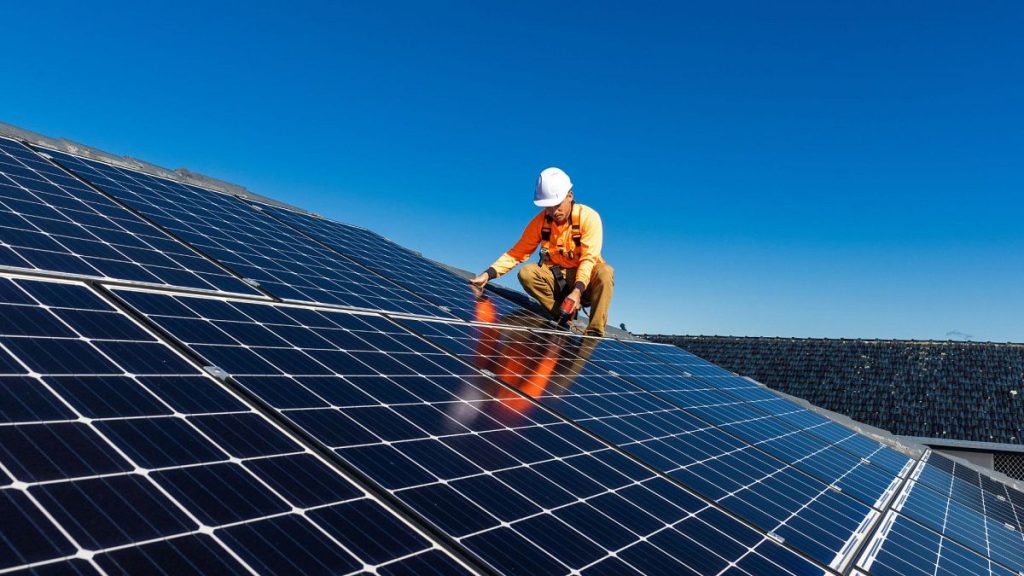The German residential solar panel market is currently facing a significant downturn, a stark contrast to the boom it experienced in the wake of the Russia-Ukraine conflict. Initially, concerns over energy security and soaring energy prices, coupled with generous government subsidies, fueled a surge in demand and installations. However, this period of robust growth has given way to a correction driven by a confluence of factors, primarily the cost of living crisis and rising interest rates. These economic pressures have made consumers hesitant to invest in solar panel installations, which often require significant upfront costs. The increased cost of financing packages due to higher interest rates has further exacerbated this reluctance. Adding to the industry’s woes is the government’s decision to reform and scale back some renewable energy subsidies, shifting from guaranteed prices to one-time grants and potentially reducing subsidies during periods of ample storage capacity. The combined effect of these economic and policy changes has dampened consumer and investor sentiment, creating a challenging environment for the solar panel sector.
The initial surge in solar panel installations in Germany following the outbreak of war in Ukraine was largely driven by fears of escalating energy prices and concerns about the European Union’s energy security. This surge, reflected in the impressive installation figures for the first nine months of 2024, was supported by government initiatives aimed at bolstering renewable energy adoption and reducing dependence on Russian energy sources. These subsidies and grants created a favorable environment for the solar panel sector, leading to a period of significant growth and profitability. However, this positive momentum was not sustainable in the face of changing economic conditions. The subsequent rise in the cost of living and interest rates began to erode consumer confidence and willingness to invest in solar energy, signaling a turning point for the industry.
The cost of living crisis has played a pivotal role in dampening demand for solar panels in Germany. As household budgets are squeezed by rising prices for essential goods and services, consumers are increasingly prioritizing immediate needs over long-term investments like solar panel installations. This hesitation is understandable given the often substantial upfront costs associated with solar energy adoption. Compounding this issue is the rise in interest rates, which has made financing options for solar panel purchases more expensive, further deterring potential buyers. The cumulative effect of these economic pressures has created a sense of uncertainty in the market, impacting both consumer demand and investor confidence.
The German government’s decision to revise its renewable energy subsidy program has further contributed to the downturn in the solar panel market. The shift from guaranteed prices to one-time grants introduces a new level of financial risk for investors and consumers alike. The potential for reduced subsidies during periods of high storage capacity adds another layer of complexity to the equation. These policy changes, while potentially aiming for greater efficiency in the long run, have created short-term uncertainty and contributed to the cooling of investor enthusiasm. This shift in government support, coupled with the prevailing economic headwinds, has created a less favorable environment for solar panel companies and further dampened consumer interest.
Beyond the economic and policy factors, the German solar panel market is also grappling with increased competition from Chinese manufacturers. Chinese-made solar panels are often significantly cheaper than their German counterparts, putting pressure on domestic producers and contributing to price erosion. This competitive pressure has led to industry consolidation, with smaller companies merging or being acquired to remain viable. The influx of cheaper imports has also discouraged new investments in domestic production, further exacerbating the challenges faced by the German solar panel industry. This intensifying competition, coupled with the aforementioned economic and policy factors, has created a perfect storm for the German solar panel sector.
While the overall market is facing significant challenges, there is a glimmer of hope in the growing popularity of mini photovoltaic systems. These smaller-scale systems represent a more affordable entry point into solar energy for consumers, allowing them to contribute to the green energy transition even amidst economic constraints. The increased adoption of mini PV systems suggests that consumer interest in sustainable energy solutions remains, albeit on a smaller scale. However, the future of the German solar panel market remains uncertain, with the interplay of economic conditions, government policies, and international competition ultimately shaping its trajectory. The industry faces the challenge of adapting to these evolving circumstances to regain its footing and contribute to the country’s renewable energy goals.














